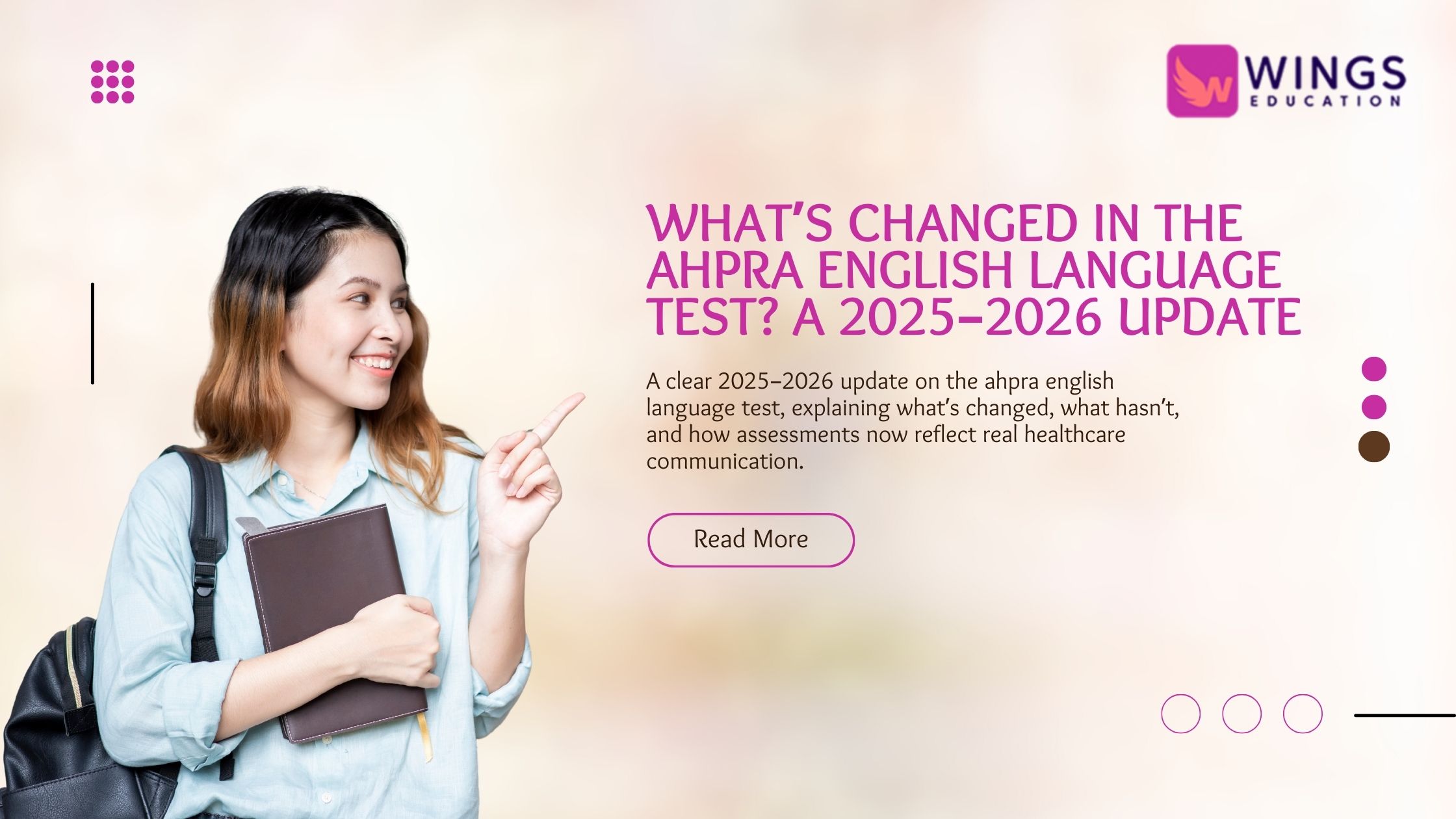
Top 5 Myths About the AHPRA English Language Test Debunked
Debunk the top 5 myths about the AHPRA English language test and get clear, accurate info to meet Australia’s healthcare registration requirements confidently.
Meeting the AHPRA English language test criteria is an important first step for anyone interested in working in Australia’s healthcare system, particularly as a nurse, midwife, or allied health professional. It’s more than just passing an exam; it’s about demonstrating your ability to communicate safely and effectively in clinical settings, where even little mistakes can have major implications.
However, navigating the procedure can be intimidating. There is a wealth of information available online, but unfortunately, much of it is outdated, misinterpreted, or entirely incorrect. This causes many applicants to experience undue stress, uncertainty, and, in some circumstances, avoidable rejections. Misinformation abounds, whether it concerns which tests are recognized, how scores are calculated, or who may be excluded from the requirement entirely.
You may be asking yourself: Should I take IELTS or PTE? Can I mix two test scores? Is OET easier for nurses? Should I take the test if I’ve studied in English? These are all genuine worries, and knowing the appropriate answers is critical before devoting time and money to exam preparation.
That’s why, in this article, we’ll dispel the top five prevalent fallacies about the AHPRA English language test, allowing you to register with confidence.
Myth #1: You Must Take the IELTS to Meet AHPRA’s English Language Requirements.
Truth: This is entirely false. While the IELTS is a popular test, AHPRA recognizes other tests as well.
AHPRA now accepts multiple English examinations, including:
- Academic modules for IELTS and PTE.
- OET (Occupational English Test)
- TOEFL (iBT)
Each exam has unique scoring requirements, and AHPRA offers detailed information on the minimum scores and conditions that must be met. For example, if you’re taking the PTE Academic, you must score at least 65 on each of the four components (Listening, Reading, Writing, and Speaking).
So, if IELTS isn’t your strong suit, you have other options. Many healthcare professionals like the OET because it is based on medical English and contains tasks such as writing referral letters and comprehending patient case notes.
Bottom Line: You are free to select the English test that best suits your strengths—as long as it is accepted by AHPRA and passes the scoring requirements.
Myth #2: You Cannot Combine Test Results (No Score Clubbing Allowed).
Truth: AHPRA allows score clubbing under certain conditions.
Clubbing allows combining scores from two test sittings to achieve an overall criterion, but only when both tests are of the same type (e.g., two IELTS Academic or two PTE Academic).
- The exams were taken within six months of one another.
- All components (reading, writing, hearing, and speaking) exceeded a specific minimum threshold.
- You achieved the requisite score in each skill across both sittings and did not fall below the minimum acceptable mark.
This policy benefits many applicants who just make the cut in one component of an exam, such as speaking or writing, but perform well in the other.
For example, if you scored 65 in three components and 62 in one on your first PTE try and then improved that weak area on your second effort (within 6 months), AHPRA may consider your combined score if you match their criteria.
Bottom line: You don’t have to repeat the entire test several times. When done correctly, score clubbing can be a great choice
Myth #3: Even if you studied in an English-speaking country, you still need to take the test.
Truth: Not always. AHPRA does grant exemptions from the English language test under certain circumstances.
If you have completed at least six years of secondary and tertiary education in a recognized English-speaking country, including at least two years of relevant health education, you could be exempt from taking the test.
Accepted countries often include
- Australia
- New Zealand
- United Kingdom
- United States
- Canada
- Republic of Ireland
- South Africa.
The essential question here is whether your health qualification (such as a nursing degree or diploma) was taught and graded in English in any of these nations.
However, even if you studied in a non-English-speaking nation and your medium of instruction was English, AHPRA will most likely need you to take an approved English language test.
Bottom Line: You may be exempt from the AHPRA English language test, but only if your educational path meets extremely stringent requirements. Always double-check the exemption guidelines on AHPRA’s official website.
Myth #4: The AHPRA English Language Test is more difficult than other English tests.
The AHPRA English language test is not an independent test developed by AHPRA. It is just required to submit a legitimate score from an approved English proficiency test, such as IELTS, PTE, OET, or TOEFL.
So there is no distinct “AHPRA version” of the test that is more difficult than the ordinary ones. The difficulty level varies depending on the test you take, your level of preparation, and your familiarity with academic or healthcare-related English.
Here’s a little comparison to assist you:
- OET is medically specific and easier for healthcare workers to understand.
- PTE Academic is computer-based and may suit those who are more tech-savvy.
- IELTS is globally recognized and paper- or computer-based.
- TOEFL iBT is an internet-based test that is more popular in the United States.
You’ll have a far better chance of success if you prepare thoroughly and choose a test format that fits your learning style. Many candidates make the mistake of picking IELTS solely because it is popular, even if another test would be more appropriate for them.
Bottom Line: The AHPRA English language test is not more difficult than other test formats—but preparation and the appropriate test choice are critical.
Myth #5: You only need to pass the overall score—the component scores do not matter.
Truth: This is one of the most common blunders applicants make.
AHPRA requires you to get a minimum score in each of the four language skills: listening, reading, writing, and speaking. Failure to meet the required score in any one section will result in rejection, even if your overall score is high.
Let’s use the PTE Academic sample again:
- You must score at least 65 in each skill area, not merely an average of 65.
- If you score 90 in three categories but 60 in one, your application will not be accepted.
The same rule applies to the IELTS and OET. You can’t “make up” for a weakness by improving in other areas. AHPRA wishes to guarantee that all healthcare professionals can communicate effectively in all elements of English, not only reading and writing.
Bottom Line: Always strive for balanced scores in all components, not simply the outcome.
Final Thoughts
The AHPRA English language test is a critical step for international healthcare workers seeking to practice in Australia. However, it does not have to be frightening or confusing. By separating the facts from the misconceptions, you’ll be better prepared to select the appropriate test, understand the requirements, and avoid frequent errors that could cause your registration to be delayed.
Let us recap the reality behind the misconceptions.
- You do not have to take just IELTS.
- Score clubbing is permitted with restrictions.
- You may be excluded if you study in an English-speaking country.
- The test isn’t harder; it’s about selecting the best one for you.
- Each skill element is important, not simply the final score.
Understanding these things fully will get you one step closer to attaining your Australian registration goal with confidence and clarity.























